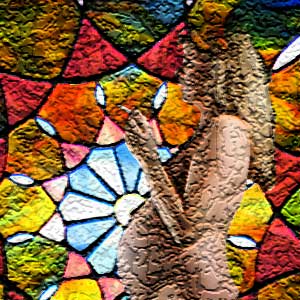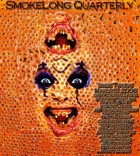“I pushed on further and further into the heat and dust, into the whatever might be.” Love that line. What relationship does this character’s desire have with your own, including those associated with your writing?
In life, I doubt if there’s anyone less adventurous than I am. I’ve no curiosity at all as far as the unknown is concerned. What’s over the next hill, across the river, can stay where it is and I’ll not trouble it. Writing is a slightly different matter. I’m excited by not knowing what might happen in a story after the opening sentences. At the same time I feel anxious. There’s fascination but not much joy in first drafts for me.
The character in the story no longer has a before to hold him back or keep him safe. His old life is thousands of miles away. He must go on and take whatever comes. The immigrant experience is as much desperate as hopeful, a throw of the dice.
From Faulkner’s “The Bear”:
He seemed to see it entire with a child’s complete divination before he ever laid eyes on either—the doomed wilderness whose edges were being constantly and punily gnawed at by men with axes and plows who feared it because it was wilderness, men myriad and nameless even to one another in the land where the old bear had earned a name, through which ran not even a mortal animal but an anachronism, indomitable and invincible, out of an old dead time, a phantom, epitome and apotheosis of the old wild life at which the puny humans swarmed and hacked in a fury of abhorrence and fear, like pygmies about the ankles of a drowsing elephant: the old bear solitary, indomi table and alone, widowered, childless, and absolved of mortality—old Priam reft of his old wife and having outlived all his sons.
What are your own thoughts on “wilderness”?
There are wild places in the British Isles, but nothing you could call wilderness. Every scrap of land in the UK is owned by someone and has been for nearly a thousand years. With the land comes ownership of the animals and birds that live on it and fly over it. I suspect the American wilderness would have been both a liberation and a challenge to the immigrant. If there was an adversary it was nature rather than the law.
The arbiter on high versus the new god on earth. What’s this struggle really about?
The struggle is for self-determination. In old countries the church and state solidify into hierarchies that exclude those without wealth and power. God’s will becomes the will of the people who pay for the churches, own the land. The new god on earth would be the oldest god on earth: nature.
In “doing her bidding” has the man given up freedom? Is he less or more free than he believes? And what is true freedom? Does one ever find it? If so, where?
I think it’s for the reader to answer these questions. Perhaps what he says and what he does aren’t quite the same? New beginnings don’t necessarily avoid old endings.
What was it like working with Angela Carter, Sir Malcolm Bradbury, and Paul Muldoon while completing your MA in Creative Writing?
I enjoyed the course very much. Malcolm was, of course, a knowledgeable and perceptive critic. He could say two sentences about a story that would go straight to any problem areas it might have. He made suggestions based on the artistic needs of a piece of work rather than trotting out a list of rules and regulations. Each story was seen as its own world.
Angela was both strict and easy going. She would challenge you to justify what you were doing and then, when she was sure you were properly focused, help you achieve your aims. She was also very funny and pointedly disrespectful of the established order. She was probably the cleverest, most original person I’ve ever worked with/been taught by. You may not like her books, but they are 100% Angela Carter.
Paul Muldoon socialised with the writers on the course on several occasions. He’s a quietly spoken man, with take on the world that’s never what you might expect.



 A SmokeLong Summer 24!
A SmokeLong Summer 24!